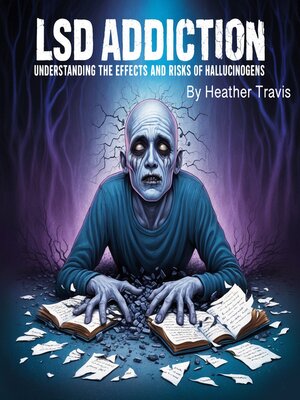LSD Addiction
audiobook (Unabridged) ∣ Understanding the Effects and Risks of Hallucinogens
By Heather Travis

Sign up to save your library
With an OverDrive account, you can save your favorite libraries for at-a-glance information about availability. Find out more about OverDrive accounts.
Find this title in Libby, the library reading app by OverDrive.



Search for a digital library with this title
Title found at these libraries:
| Library Name | Distance |
|---|---|
| Loading... |
This audiobook is narrated by a digital voice.
In the pantheon of psychoactive substances, lysergic acid diethylamide, commonly known as LSD, occupies a unique and controversial position that challenges conventional understanding of addiction and dependence. First synthesized by Swiss chemist Albert Hofmann in 1938 and accidentally discovered to be psychoactive in 1943, LSD became the archetypal psychedelic drug of the 1960s counterculture movement and has remained one of the most potent and enigmatic substances in human pharmacological experience. The concept of LSD addiction presents a fascinating paradox that has puzzled researchers, clinicians, and users alike, as the drug's mechanism of action and effects appear to contradict traditional models of addictive substances while still creating patterns of compulsive use in certain individuals.
The traditional understanding of addiction relies heavily on concepts of physical dependence, tolerance, and withdrawal symptoms that are readily observable with substances like alcohol, opioids, or stimulants. LSD appears to violate these conventional addiction paradigms in several important ways. The drug does not produce physical dependence in the classical sense, users do not experience withdrawal symptoms when discontinuing use, and the rapid development of tolerance actually serves as a natural brake on frequent use rather than driving escalating consumption patterns. These characteristics led many early researchers and drug policy experts to conclude that LSD was not addictive in the traditional sense, a belief that persisted for decades and influenced both scientific understanding and legal classification of the substance.
However, the emergence of compelling case studies and clinical observations has revealed that some individuals do develop problematic relationships with LSD that share many characteristics with other forms of addiction.







